What do I need to know about living overseas and retiring abroad?
Anne Gordon de Barrigón - Whale Watching Panama/Emberá Village Tours
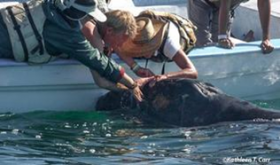 The most important thing you need to know about living overseas and retiring overseas is to keep an open mind and be respectful to the new culture you are moving into. Always remember you are the newcomer and as such, it is up to you to adapt to how things are done in your new chosen country. Do not expect the locals to speak English and change the way they have always done things to fit your expectations. It can be a bit frustrating at first, and there is always a...
The most important thing you need to know about living overseas and retiring overseas is to keep an open mind and be respectful to the new culture you are moving into. Always remember you are the newcomer and as such, it is up to you to adapt to how things are done in your new chosen country. Do not expect the locals to speak English and change the way they have always done things to fit your expectations. It can be a bit frustrating at first, and there is always a... The most important thing you need to know about living overseas and retiring overseas is to keep an open mind and be respectful to the new culture you are moving into. Always remember you are the newcomer and as such, it is up to you to adapt to how things are done in your new chosen country. Do not expect the locals to speak English and change the way they have always done things to fit your expectations. It can be a bit frustrating at first, and there is always a learning curve, but keep an open mind and always be respectful to the local people and culture and it will get you where you want to go, eventually. It is also very important to make a very serious attempt at learning the local language and customs. Even if it is very difficult for you to learn a new language, it will make your life in a new country so much easier if you pick up the local lingo. You will find the locals will be very appreciative if you try to speak the local language, even if you are not doing well, they will help you if you at least try.
The most important thing you need to know about living overseas and retiring overseas is to keep an open mind and be respectful to the new culture you are moving into. Always remember you are the newcomer and as such, it is up to you to adapt to how things are done in your new chosen country. Do not expect the locals to speak English and change the way they have always done things to fit your expectations. It can be a bit frustrating at first, and there is always a learning curve, but keep an open mind and always be respectful to the local people and culture and it will get you where you want to go, eventually. It is also very important to make a very serious attempt at learning the local language and customs. Even if it is very difficult for you to learn a new language, it will make your life in a new country so much easier if you pick up the local lingo. You will find the locals will be very appreciative if you try to speak the local language, even if you are not doing well, they will help you if you at least try. Have fun with it and be adventurous and respectful and you will have an amazing experience.
(Anne Gordeon's whale watching (and petting) tours in Panama, pictured.)
Posted March 14, 2013
Jay Butler - Asset Protection Services of America
Having visited over 35 countries worldwide and resided in 6 countries on 4 continents, I believe I may be able to contribute some helpful information with regards to what you need to know about living internationally.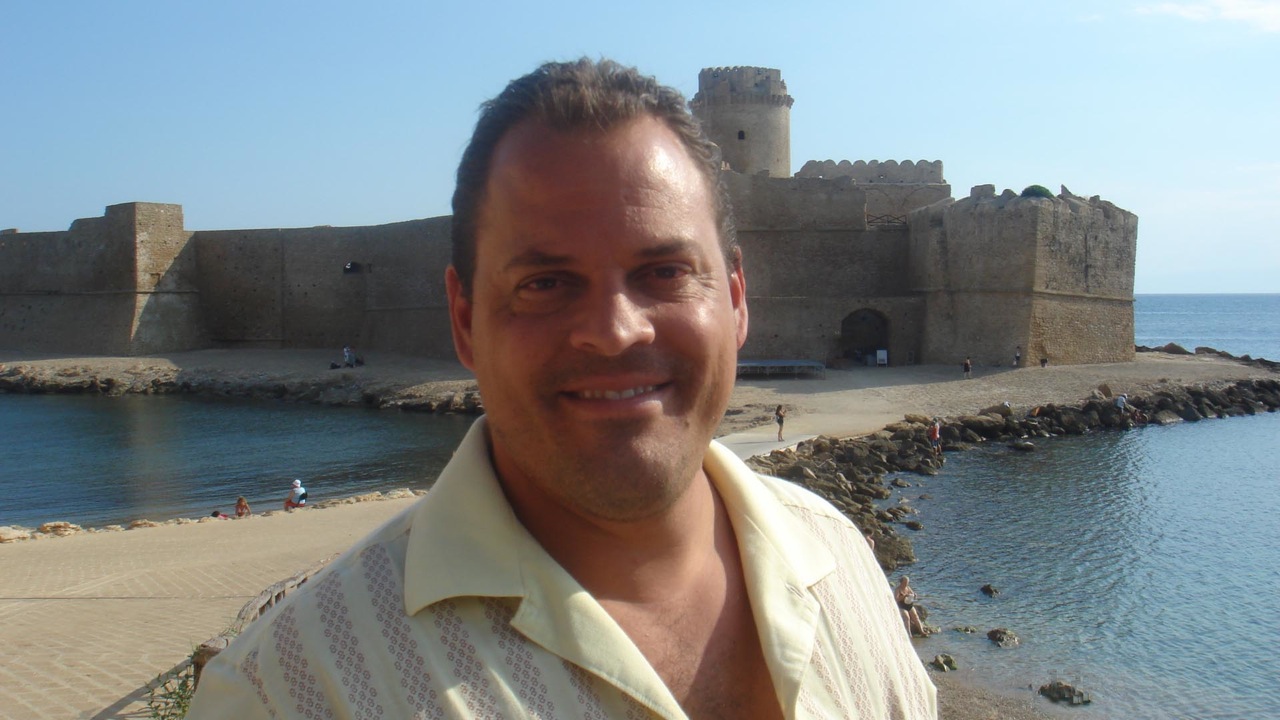

If you are considering living abroad, I would first recommend you take an extended trip for a period of no less than 2 months to the country wherein you are considering living. Vacationing in a foreign country is altogether a different...
Having visited over 35 countries worldwide and resided in 6 countries on 4 continents, I believe I may be able to contribute some helpful information with regards to what you need to know about living internationally.

If you are considering living abroad, I would first recommend you take an extended trip for a period of no less than 2 months to the country wherein you are considering living. Vacationing in a foreign country is altogether a different experience from residing there. Generally, when vacationing, you are in a positive frame of mind and excited to experience new sights and sounds. Everything is new and invigorating and despite one's best efforts to avoid tourist traps, we all have a propensity to witness the best restaurants, museums, shopping and activities a given locality has to offer.
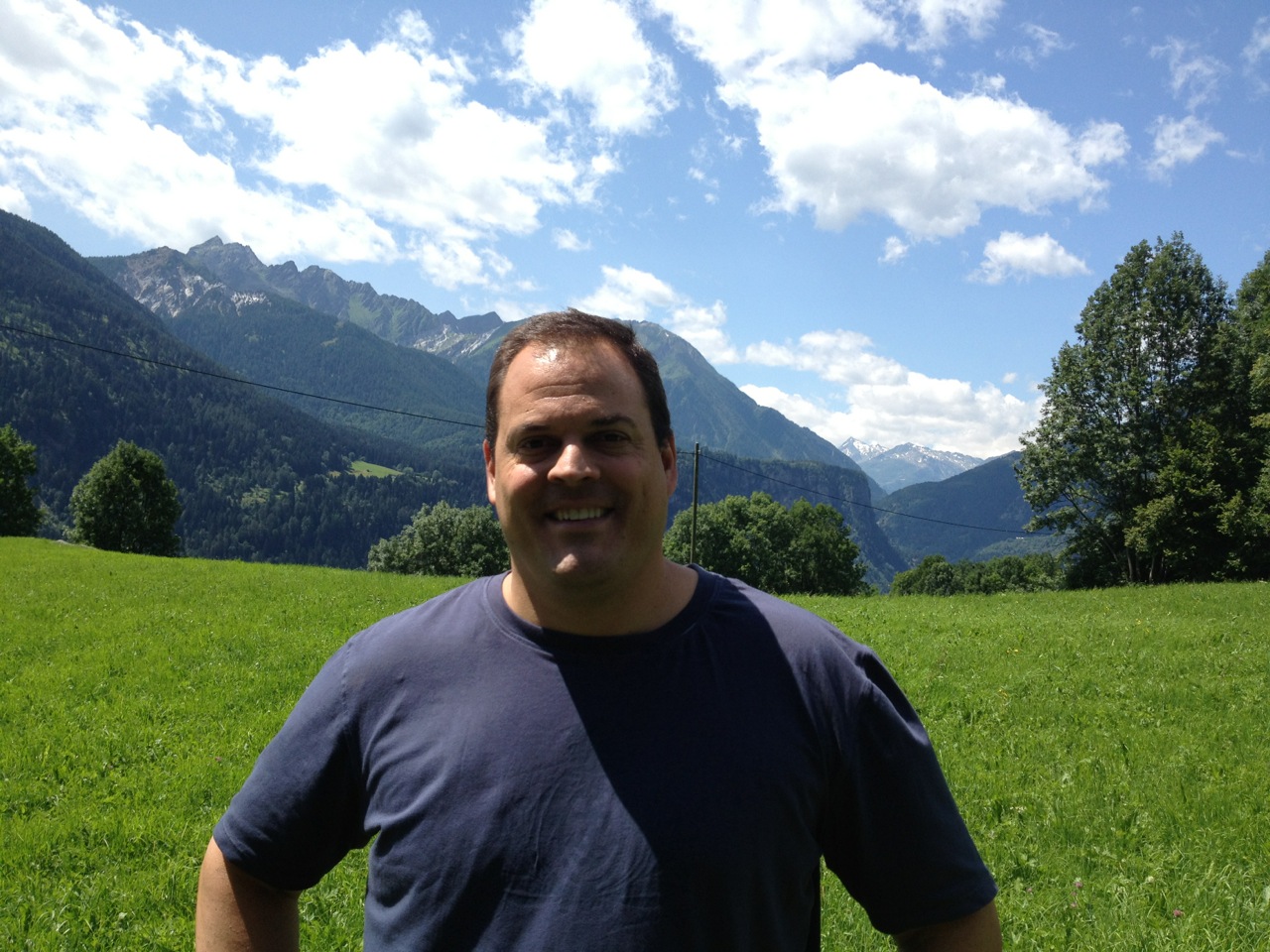 If you have ever moved to different city which is a considerable distance from your home town, then you can relate to some of the stresses involved with locating the nearest grocery store and post office or dentist. When you are no longer returning 'home' to show your friends and co-workers photos from your latest adventure, the honeymoon of traveling abroad wears off and the marriage begins.
If you have ever moved to different city which is a considerable distance from your home town, then you can relate to some of the stresses involved with locating the nearest grocery store and post office or dentist. When you are no longer returning 'home' to show your friends and co-workers photos from your latest adventure, the honeymoon of traveling abroad wears off and the marriage begins.The items of most importance which I could relay to you from my experience is to choose a jurisdiction in which you absolutely love the culture and language. If you are considering moving to an predominately Spanish speaking country, but don't know (or care for) the language, you are going to have a hell of a time when you need to sign your first apartment rental agreement or mortgage, etc.
Remember, every country has challenges whether they be providing reliable internet, potable water, or adequate medical care. Unless you have a considerable amount of investments saved away, ensure that you are able to provide for yourself financially. 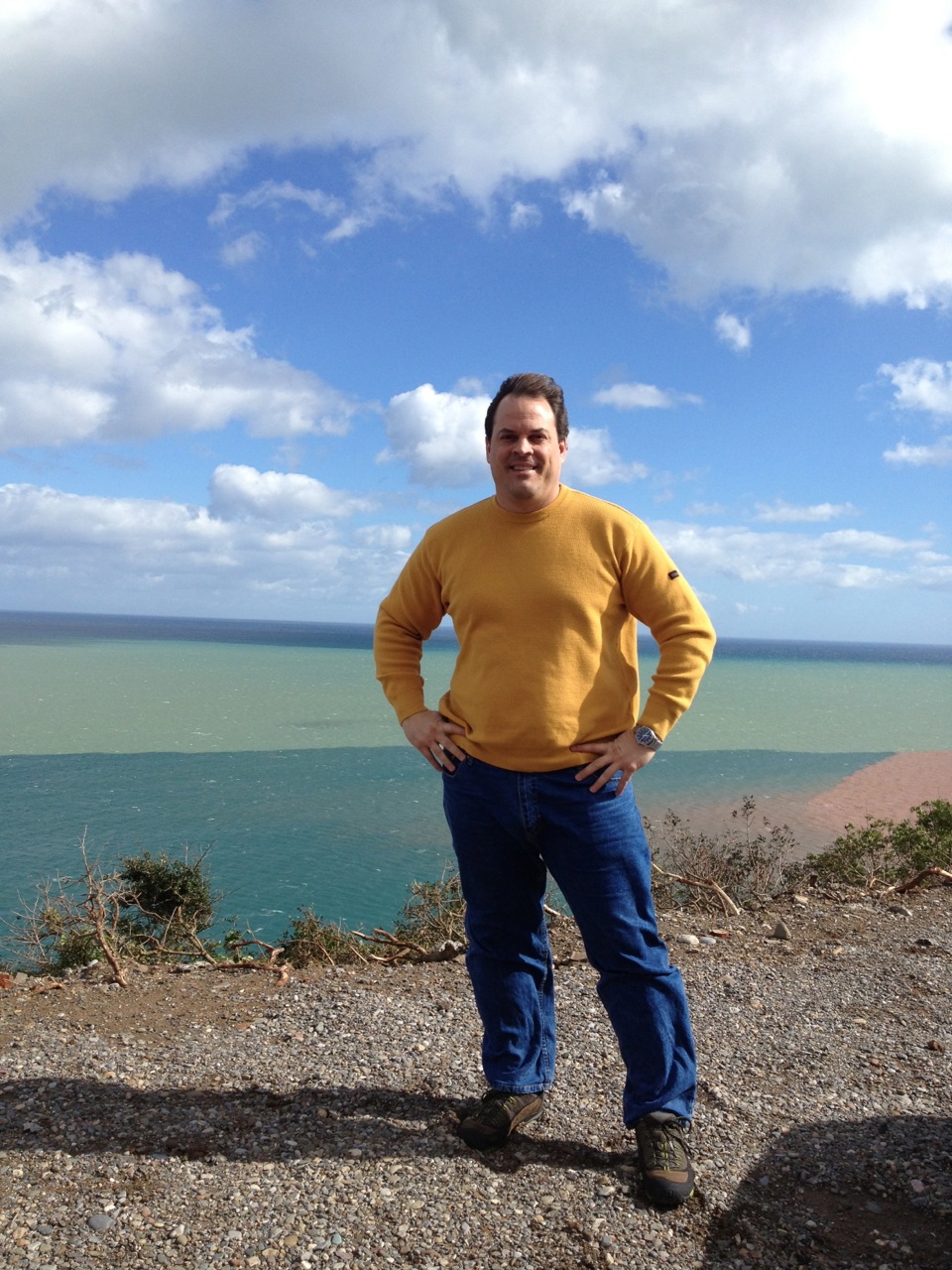 It is much easier to move to a country where the exchange rate favors you than to go in the other direction. If you have ever been stranded due to inclement weather and run out of funds then you know how scary that can be.
It is much easier to move to a country where the exchange rate favors you than to go in the other direction. If you have ever been stranded due to inclement weather and run out of funds then you know how scary that can be.
 It is much easier to move to a country where the exchange rate favors you than to go in the other direction. If you have ever been stranded due to inclement weather and run out of funds then you know how scary that can be.
It is much easier to move to a country where the exchange rate favors you than to go in the other direction. If you have ever been stranded due to inclement weather and run out of funds then you know how scary that can be.Lastly, given the brevity of this answer, make some friends and build contacts in the area where you want to live. You should absolutely have solid legal counsel to assist you with any major purchases such as real property and meeting with new friends to enjoy your drinks by the beach makes the transition far more enjoyable.
Posted March 23, 2013
Allen Rosen - Chiriqui Coastal Real Estate
I am a Canadian who has lived in Panama for 6 years.
The most important -- and difficult -- lesson I have learned in Panama is this:
If you arrive in your new country with an open mind and a willingness to adapt to its culture, you will thrive.
If you arrive with a 'gringo mindset' and believe that your new country has an obligation to adapt to you and your values, well, you are going to end up being miserable and...
I am a Canadian who has lived in Panama for 6 years.
The most important -- and difficult -- lesson I have learned in Panama is this:
If you arrive in your new country with an open mind and a willingness to adapt to its culture, you will thrive.
If you arrive with a 'gringo mindset' and believe that your new country has an obligation to adapt to you and your values, well, you are going to end up being miserable and will probably return to your previous country.
Remember, folks, when you move to a new country, it is their country. If, for example, you think the service is bad in Panama, as it usually is, you need to bear in mind that they have a right to run their country the way they want -- bad service and all. And if we foreigners are not comfortable with that, then we are the ones who need to change or go back to our home countries.
Follow this simple rule and I promise that your new life in a foreign land will be much happier!
Posted April 29, 2013
James David Audlin - Editores Volcán Barú
Do you remember the Biblical story of the Exodus? The Israelites managed to escape Egypt, its bureaucracy and crime and unpleasantness -- and through the forty years of wandering in the wilderness they whined and complained for ever having left, and, when they got to the Promised Land, they proceeded to set up a country with a king, bureaucracy, crime, and unpleasantness.
There's a moral in this story for expats moving to Panamá or any other foreign country. Don't expect it...
There's a moral in this story for expats moving to Panamá or any other foreign country. Don't expect it...
Do you remember the Biblical story of the Exodus? The Israelites managed to escape Egypt, its bureaucracy and crime and unpleasantness -- and through the forty years of wandering in the wilderness they whined and complained for ever having left, and, when they got to the Promised Land, they proceeded to set up a country with a king, bureaucracy, crime, and unpleasantness.
There's a moral in this story for expats moving to Panamá or any other foreign country. Don't expect it to be your home country. Think of yourself as a guest, and respect the way things are done here. You will certainly conclude that some things might be done better; but, if you keep your mind open, you will realize that some things are, in fact, done better in your new country. Don't rush to judgment, and don't sneer or criticize your new neighbors. Don't leave the United States (or wherever) for various reasons (high costs, political turmoil, psychological tension, crime, etc.) and then demand the same kinds of services here in Panamá that lead to the same factors!
There's a moral in this story for expats moving to Panamá or any other foreign country. Don't expect it to be your home country. Think of yourself as a guest, and respect the way things are done here. You will certainly conclude that some things might be done better; but, if you keep your mind open, you will realize that some things are, in fact, done better in your new country. Don't rush to judgment, and don't sneer or criticize your new neighbors. Don't leave the United States (or wherever) for various reasons (high costs, political turmoil, psychological tension, crime, etc.) and then demand the same kinds of services here in Panamá that lead to the same factors!
The community of Boquete, for example, is about half "gringo" by now, with the proportion constantly increasing. As an inevitable result, the cost of living is higher there than in other parts of the Tierras Altas - and crime is more common, government is more irritating, and the pace of life is far less tranquil. The gringos there, sadly, have been creating a new "Egypt" in imitation of the one they couldn't wait to get away from.
My advice is come with few preconceptions - and come with few physical possessions. You can buy what you need when you get here. Start fresh!
Do your homework. If you rely on Social Security or Medicare, get solid information on their availability to you. If you have medical needs, consider proximity to a good hospital. (There is a top-notch facility in the capital city of this Chiriquí province, and a new hospital is about to open in Volcán. Don't rely on other gringos for information; I have lost track of the completely erroneous un-facts given to me by gringos living here.
Do your homework. If you rely on Social Security or Medicare, get solid information on their availability to you. If you have medical needs, consider proximity to a good hospital. (There is a top-notch facility in the capital city of this Chiriquí province, and a new hospital is about to open in Volcán. Don't rely on other gringos for information; I have lost track of the completely erroneous un-facts given to me by gringos living here.
Above all, be gracious. On my first day here I began the practice of walking about my new neighborhood - for exercise, and to get to know my neighbors. My Spanish was at the time execrable, but by this means I quickly improved, and speak it fluently now; I find it abhorrent that some gringos expect everyone here to speak English, and start angrily shouting at Panamanians as if that will somehow improve their ability to understand English. By walking about, I also became known to my neighbors, such that they looked out for me as good neighbors do.
Become used to how things are here. The electric power and internet services often quit for a few minutes or an hour -- that's life here, so don't whine about it. Panamanian homes often don't have hot showers; if that's how it is for you, enjoy it (I find it's better than coffee in the morning). Shops and services often make promises and are rather flexible about when they keep them or whether they will keep them at all; don't let this get you angry; it's just how it is here. You do better to ask someone knowledgeable for a recommendation of a good service provider.
Posted May 28, 2013
Keila Mulero - Savvy Link
Hi I moved to Panama a year ago and I love it. I have lived in Puerto Rico, Peru, Miami, Atlanta and Indiana and Panama is by far the best choice for retirement. You must remember, and a lot of people often forget, that Panama is still a third world country. BUT with lots of advantages like currency, cost of living, life style, and much more. It's a lot safer than Puerto Rico and Miami. You can have a maid for $350 a month. Fruit and vegetables are always fresh. I even became...
Hi I moved to Panama a year ago and I love it. I have lived in Puerto Rico, Peru, Miami, Atlanta and Indiana and Panama is by far the best choice for retirement. You must remember, and a lot of people often forget, that Panama is still a third world country. BUT with lots of advantages like currency, cost of living, life style, and much more. It's a lot safer than Puerto Rico and Miami. You can have a maid for $350 a month. Fruit and vegetables are always fresh. I even became vegetarian in Panama. If you like sports, every weekend there is at least two sports events in the City or at any of its provinces. Panama has a lot of beauty. I do agree that the service industry needs a lot of improvement. When it comes to people and manners the average Panamanian is behind. However, my close Panamanian friends are well educated with manners, very good people. Traffic is an issue, like any cities such as Miami, New York, Atlanta. I have learned 'short cuts' and always managed my way out of it. One more thing, I have visited 75% of the country, I have been to places like Torrijos Carter, San Miguelito for business as well as Boca Chica, Las Lajas, Boquete, San Blas and great resorts. In summary, I know Panama very well and my experience has been fantastic. If you like more information about Panama, moving or relocating, feel free to contact me. I am US Citizen and permanent resident in Panama.
Posted January 25, 2014
Keila Mulero - Savvy Link
Hi I moved to Panama a year ago and I love it. I have lived in Puerto Rico, Peru, Miami, Atlanta, Indiana and Panama is by far the best choice for retirement. You must remember, and a lot of people often forget, that Panama is still a third world country. BUT with lots of advantages like currency, cost of living, life style, and much more. It's a lot safer than Puerto Rico and Miami. You can have a maid for $350 a month. Fruit and vegetables are always fresh. I even became...
Hi I moved to Panama a year ago and I love it. I have lived in Puerto Rico, Peru, Miami, Atlanta, Indiana and Panama is by far the best choice for retirement. You must remember, and a lot of people often forget, that Panama is still a third world country. BUT with lots of advantages like currency, cost of living, life style, and much more. It's a lot safer than Puerto Rico and Miami. You can have a maid for $350 a month. Fruit and vegetables are always fresh. I even became vegetarian in Panama. If you like sports, every weekend there is at least two sports events in the City or at any of its provinces. Panama has a lot of beauty. I do agree that the service industry needs a lot of improvement. When it comes to people and manners the average Panamanian is behind. However, my close Panamanian friends are well educated with manners, very good people. Traffic is an issue, like any cities such as Miami, New York, Atlanta. I have learned 'short cuts' and always managed my way out of it. One more thing, I have visited 75% of the country, I have been to places like Torrijos Carter, San Miguelito for business as well as Boca Chica, Las Lajas, Boquete, San Blas and great resorts. In summary, I know Panama very well and my experience has been fantastic.
I am permanent resident of Panama and US citizen. During my 15 years career in Corporate America I was expatriated to the US, Peru and the Dominican Republic. With the world economic situation, I found Panama as “the land of opportunities” and decided to move abroad. My family and I have experienced the whole process of relocating ourselves. We have learned the Panamanian “system” and requirements. I must admit it was frustrating and disappointing. Finally, after loosing lots of time and money, we met the right people and were able to process our residency. There are lots of scam out there, lots of attorneys that just take your money and disappear.
WHAT YOU SHOULD KNOW - THIS IS HOW WE DID IT!
Executive Decree No. 806 October 9, 2012 - If you are citizen of any of these countries you can opt for residency like we did. The process takes 6 - 8 months depeding on how soon you present the paperwork.
COUNTRIES: Canadá; Confederación de Australia; Confederación Suiza; Corea del Sur; Estados Unidos de América; Estado de Japón; Estado de Israel; Gran Ducado de Luxemburgo; Hungría; Latvia; Nueva Zelanda; Principado de Andorra; Principado de Liechtenstein; Principado de Mónaco; Reino de Bélgica; Reino de Dinamarca; Reino de España; Reino de Noruega; Reino de Suecia; Reino Unido de Gran Bretaña e Irlanda del Norte; Reino de los Países Bajos; Región Administrativa Especial de Hong Kong; Republica de Argentina; Republica de Austria; Republica de Checa; Republica de Chile; Republica de
Chipre; Republica de Croacia; Republica Eslovaca; Republica de Estonia; Republica Helénica (Grecia); Republica Federal de Alemania; Republica Federativa de Brasil; Republica de Finlandia; Republica Francesa; Republica de Irlanda; Republica de Lituania; Republica de Malta; Republica de Montenegro; Republica Oriental de Uruguay; Republica de Polonia; Republica Portuguesa; Republica de Servia; Republica de Suiza; Republica de Sudáfrica; Republica de Taiwán; Serenísima República de Marino.
COUNTRIES: Canadá; Confederación de Australia; Confederación Suiza; Corea del Sur; Estados Unidos de América; Estado de Japón; Estado de Israel; Gran Ducado de Luxemburgo; Hungría; Latvia; Nueva Zelanda; Principado de Andorra; Principado de Liechtenstein; Principado de Mónaco; Reino de Bélgica; Reino de Dinamarca; Reino de España; Reino de Noruega; Reino de Suecia; Reino Unido de Gran Bretaña e Irlanda del Norte; Reino de los Países Bajos; Región Administrativa Especial de Hong Kong; Republica de Argentina; Republica de Austria; Republica de Checa; Republica de Chile; Republica de
Chipre; Republica de Croacia; Republica Eslovaca; Republica de Estonia; Republica Helénica (Grecia); Republica Federal de Alemania; Republica Federativa de Brasil; Republica de Finlandia; Republica Francesa; Republica de Irlanda; Republica de Lituania; Republica de Malta; Republica de Montenegro; Republica Oriental de Uruguay; Republica de Polonia; Republica Portuguesa; Republica de Servia; Republica de Suiza; Republica de Sudáfrica; Republica de Taiwán; Serenísima República de Marino.
Let me know if you would like more information.
Posted January 28, 2014
Robert Adams - Retirement Wave
Presented with permission from Bob Adams, of Retirement Wave. (Transcription of video below.)
I’d like to share with you today a rule of how you can act and behave when you relocate to another nation. It’s a very important rule, and its one you already know. In English we call it “The Golden Rule.” Every language in every culture has its variations it seems. “Do unto others as...
Presented with permission from Bob Adams, of Retirement Wave. (Transcription of video below.)
I’d like to share with you today a rule of how you can act and behave when you relocate to another nation. It’s a very important rule, and its one you already know. In English we call it “The Golden Rule.” Every language in every culture has its variations it seems. “Do unto others as you want them to do unto you.” Treat other people as you want them to treat you.
When you’re moving or relocating to another country, you’re not really an immigrant, but you are going to spend a number of years and possibly, as in my case, expecting to live the rest of your life there.
When you arrive, you’re in a sense an immigrant in the eyes of everybody else who lives there, in that society. Now, many of us come from North America or Europe. Right now, we’ve having a lot of trouble, a lot of discussion, a lot of very strong convictions on the subject of immigration. Let’s put that aside. I don’t want to get involved with that, but I do want to say one thing to you.
Stop and think to yourself: What is it that I expect of an immigrant coming into my society right now, wherever I live? What do I want to see them doing? What sort of actions do I want to hear that they’re taking? How do I want to see them fitting in to my society so I’m happy that they really live here and they’re not just visiting from another nation?
Take those three, four, five basic things you think people should do who are immigrating to your nation, put it on a piece of paper, and carry it with you wherever you go, wherever you relocate. And every month, once a month, twice or more, take a look at that list, and ask yourself: Am I trying to do this? Am I making an effort to do what I expect other people to do when they come to my nation? Am I trying?
You can’t always succeed, you can’t always do everything perfectly, but ask yourself: Am I trying? Am I really, really working to try to meet the basic fundamentals that I expect from others and that they expect from me?
I think that if you can do that, if you can follow that one basic rule when relocating, you’re way ahead of the game, and you’re likely, far more likely I should say, to succeed, to be happy and to have a really interesting and useful life.
When you’re moving or relocating to another country, you’re not really an immigrant, but you are going to spend a number of years and possibly, as in my case, expecting to live the rest of your life there.
When you arrive, you’re in a sense an immigrant in the eyes of everybody else who lives there, in that society. Now, many of us come from North America or Europe. Right now, we’ve having a lot of trouble, a lot of discussion, a lot of very strong convictions on the subject of immigration. Let’s put that aside. I don’t want to get involved with that, but I do want to say one thing to you.
Stop and think to yourself: What is it that I expect of an immigrant coming into my society right now, wherever I live? What do I want to see them doing? What sort of actions do I want to hear that they’re taking? How do I want to see them fitting in to my society so I’m happy that they really live here and they’re not just visiting from another nation?
Take those three, four, five basic things you think people should do who are immigrating to your nation, put it on a piece of paper, and carry it with you wherever you go, wherever you relocate. And every month, once a month, twice or more, take a look at that list, and ask yourself: Am I trying to do this? Am I making an effort to do what I expect other people to do when they come to my nation? Am I trying?
You can’t always succeed, you can’t always do everything perfectly, but ask yourself: Am I trying? Am I really, really working to try to meet the basic fundamentals that I expect from others and that they expect from me?
I think that if you can do that, if you can follow that one basic rule when relocating, you’re way ahead of the game, and you’re likely, far more likely I should say, to succeed, to be happy and to have a really interesting and useful life.
Posted July 1, 2014
kevin obrien - BarefootPanama
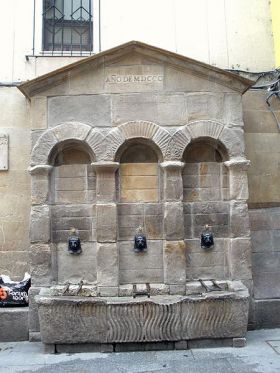 The best advice I can give about living overseas or retiring abroad is, if you want things to be like the way they are at home, then do not leave home.
The best advice I can give about living overseas or retiring abroad is, if you want things to be like the way they are at home, then do not leave home. For example, Panama is a lot different from where I come from and from where most people are from. When you go to Panama, you have to get used to the culture. For instance, the fact that there is not a lot of emphasis on education does not mean that the people of Panama are bad. For instance,throwing...
 The best advice I can give about living overseas or retiring abroad is, if you want things to be like the way they are at home, then do not leave home.
The best advice I can give about living overseas or retiring abroad is, if you want things to be like the way they are at home, then do not leave home. For example, Panama is a lot different from where I come from and from where most people are from. When you go to Panama, you have to get used to the culture. For instance, the fact that there is not a lot of emphasis on education does not mean that the people of Panama are bad. For instance,throwing trash just out the window is a common practice here because it is not embedded in their education system to do otherwise.
From the perspective of a foreigner, some of the decisions and practices here in Panama are just plain shocking. People cry about it but nothing is going to change. As an example, there was actually one person who decided that taking the trash bins out of Casco Viejo was a good idea. So right now, what everybody does with their trash is throw it on the street; the street of a world heritage site! Yes, they pile up the trash in neat piles on the corners of the streets of a world heritage site. That happens because some person of authority thought it to be a good idea to remove the trash bins in Casco Viejo. You may think that being a person of authority, he wouldn’t have made that decision, but that is not how things work here. I guess being able to adjust to where you are living is a huge part of moving away.
(Fountain in Casco Viejo, Panama City, Panama, pictured. )
Posted October 18, 2014
Robert Adams - Retirement Wave
The most important things to know when living or retiring overseas is that you have to be adaptable and flexible. It’s the same for everybody. You will be in a new and very nice environment. In many respects, it might be warmer and you might be outside more often. But there are things that will be different and aren’t done quite the same way as it did back in your country, so you just have to adapt.
If you’re inflexible, if you have to have things...
If you’re inflexible, if you have to have things...
The most important things to know when living or retiring overseas is that you have to be adaptable and flexible. It’s the same for everybody. You will be in a new and very nice environment. In many respects, it might be warmer and you might be outside more often. But there are things that will be different and aren’t done quite the same way as it did back in your country, so you just have to adapt.
If you’re inflexible, if you have to have things exactly one way or no other way, you’re going to have trouble anywhere you go.
So put adaptability and flexibility at the top of the list of things you need to pack when you come.
If you’re inflexible, if you have to have things exactly one way or no other way, you’re going to have trouble anywhere you go.
So put adaptability and flexibility at the top of the list of things you need to pack when you come.
Posted November 20, 2014
Jennifer Moloney Jones
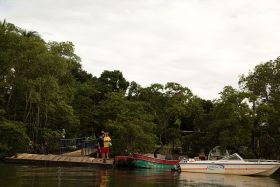 If you are going to live overseas, you need to research the country you are going to move to beforehand, and you have to visit the country several times a year and at different times because the weather can vary extremely.
If you are going to live overseas, you need to research the country you are going to move to beforehand, and you have to visit the country several times a year and at different times because the weather can vary extremely. I have friends who are retirees here in Panama, who, before moving permanently, lived here for about 3 months just to get familiar with the place and experience what it is like to be here. They wanted to get used to what the traffic...
 If you are going to live overseas, you need to research the country you are going to move to beforehand, and you have to visit the country several times a year and at different times because the weather can vary extremely.
If you are going to live overseas, you need to research the country you are going to move to beforehand, and you have to visit the country several times a year and at different times because the weather can vary extremely. I have friends who are retirees here in Panama, who, before moving permanently, lived here for about 3 months just to get familiar with the place and experience what it is like to be here. They wanted to get used to what the traffic might be like and how to get around. They also had to get used to the language because not everybody here in Panama speaks English. Knowing some Spanish is very useful.
So my advice is, go and experience what the country is like before moving in, which is a big difference from just going on holiday. I know some people who didn't do that and who came here and left, because later on, they realized that it wasn’t for them.
It is also advisable to source your doctor, just so that you are all set and comfortable when you finally relocate. You also need to know where to get your day-to-day essentials.
Finding friends will just fall into place, because there are so many social events going on, especially for expats.
Also, prepare your documents and your bank accounts, because once you move to another country, you might need a lot of paperwork. Make sure that you have all your documents notarized before you leave your home country. The postal system is not always the same in your new country as it is in the country you left.
The best and most essential thing is to do your research on the country and find out what you need before you relocate.
(Isla de Cana, Cane Island, National Park, Panama, pictured.)
Posted February 27, 2015
Kristin Wilson - Orbis Relocation
 One of the things to know about living abroad is that life is going to be different, so you should be open-minded and non-judgmental about it. We're flipping sides here. We're going from being in our comfort zone, in a place where everybody looks like us and we’re going to be the minority in the new country. We're not going to fit in 100%.
One of the things to know about living abroad is that life is going to be different, so you should be open-minded and non-judgmental about it. We're flipping sides here. We're going from being in our comfort zone, in a place where everybody looks like us and we’re going to be the minority in the new country. We're not going to fit in 100%.I was actually having this conversation the other day with somebody who owns a very big blog about living abroad. ...
 One of the things to know about living abroad is that life is going to be different, so you should be open-minded and non-judgmental about it. We're flipping sides here. We're going from being in our comfort zone, in a place where everybody looks like us and we’re going to be the minority in the new country. We're not going to fit in 100%.
One of the things to know about living abroad is that life is going to be different, so you should be open-minded and non-judgmental about it. We're flipping sides here. We're going from being in our comfort zone, in a place where everybody looks like us and we’re going to be the minority in the new country. We're not going to fit in 100%.I was actually having this conversation the other day with somebody who owns a very big blog about living abroad. They're saying that, once you leave, you aren't going to fit in a 100% in a country that you're going to. You’ll always a little bit of a foreigner - an outsider. And when you come back, you aren't going to 100% fit in America or the country that you're coming from, because you have changed. You have opened your eyes. You have had an experience that is not the norm and you have evolved. You’ll change in ways that you can't really expect but it's always in a good way.
(Pictured to the right and above: teaching orphans to surf in Costa Rica.)
So you just kind of end up with maybe one foot in Ecuador and one foot in America or wherever you're from. You're never going to fit in 100% in one place. That's okay. People might not even notice when you come back to America, but you don’t notice. They'll start to notice the way in which you're different and you'll start to appreciate it more.
.jpg) Another thing to know about moving abroad relates to planning. It's really actually quite good to have somebody on your team to help plan, because one of the most common things that happens is when you don't have clear plan when you move, a lot of well-meaning people will try to help you, but also a lot of people try to take advantage of you. You might attract situations and people that don't have your best interests in mind. For example, if you look different and you're moving from a different country they might assume you have money. You don't want to just take advice from the first people that you meet when you get to your new country. Sometimes, even on forums, people have their agendas in mind and their best interests, not yours.
Another thing to know about moving abroad relates to planning. It's really actually quite good to have somebody on your team to help plan, because one of the most common things that happens is when you don't have clear plan when you move, a lot of well-meaning people will try to help you, but also a lot of people try to take advantage of you. You might attract situations and people that don't have your best interests in mind. For example, if you look different and you're moving from a different country they might assume you have money. You don't want to just take advice from the first people that you meet when you get to your new country. Sometimes, even on forums, people have their agendas in mind and their best interests, not yours.You want to get an objective perspective. It could be anybody who has experience in that country that you're moving to and has positive reviews. That's really important because I can't tell you how many times I’ve been on an airplane and heard someone sitting next to me or behind me or in front of me, talking very loudly, giving advice to someone who's coming to Costa Rica or Mexico for the first time. The person giving the advice seems always to be a foreigner who's been there for maybe a year or even less. In some cases they've been there like 3 months or 6 months. In any case, they are giving really bad advice and very wrong information to an unsuspecting person who's sitting next to them on a plane. That's where it starts. It starts there and it doesn't end while you're in the country. People want to share their information with you but you can't be the judge of whether or not it's good or bad information.
(Pictured to the right and above: working in Punta Pacifica, Panama City, Panama.)
When people move to a new country, they tend to be very much more trusting than they would be at their country of origin. In a normal day, when we go to work, for example, we get in our cars, we drive to work and then we go off to where we work and we see all of our co-workers. We don't tend to ask any strangers for life advice or any type of advice on the side of the road or inside of a restaurant or just anywhere. What happens when people go abroad is they don't have any close connections; friends, co-workers or any family members so the first people they meet become their comfort zone. You want to be able to have some selection of who those people are and not just the first people you meet.
For example, a lot of people move to Costa Rica, for example (and this can happen anywhere) and then they want to have social gatherings, so they might invite people to come over to their home who they met in the first month or so or even in the first year that they've been living in a place. They invite a lot of the locals, like local surfers, used to tell me that these people are their friends. They come down every year for a few months and they tell me that they see them every year. Even if just one of those people is not well meaning that person could tip off somebody that you have a flat screen TV or whatever you have that has a value in your house. Somebody could break into your house and know exactly where to go to steal something because one of your acquaintances told them.
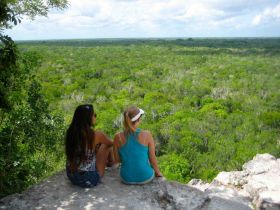 This is true especially if you're going to a country where the income is low, in Nicaragua for example, where their per capita income is one of the lowest in Latin America, just above Haiti. When you make more in a day what they can make in a year, they could be really good people but they could be in such a desperate need that they would steal or something like that to get by.
This is true especially if you're going to a country where the income is low, in Nicaragua for example, where their per capita income is one of the lowest in Latin America, just above Haiti. When you make more in a day what they can make in a year, they could be really good people but they could be in such a desperate need that they would steal or something like that to get by.I wish I could tell every expat moving abroad, just keep a little bit of that filter and barrier and self-awareness. Before you invite people to your home and take people's advice, you really need to get to know them. If you can come from that approach where you know that these other things are possible (even though they are not necessarily going to happen to you but has happened to other people), then you can choose your friends and your inner circle with more care. If you do this, you'll end up having a more positive experience and you might even end up realizing sooner rather than later, these people are not really nice friends.
(Pictured to the right and above: overlooking Mayan ruins in Mexico.)
Your caution should extend to other foreigners as well. There are foreigners who have been in the country for a long time. Maybe they are business people. They might also be there for the wrong reasons or not have your best interest in mind when there’s a business deal, real estate transaction, or other similar events. You have got to think like this and take caution wherever you go.
In Nicaragua, Mexico or Ecuador, you’re probably not going to be able to depend on the local justice system for anything when something goes wrong. It's not realistic in most cases. You really have to be your own judge of everything. I don't want it to seem like a dire warning but I have seen people who move abroad completely drop everything and just want to be friends with everybody at the same time and make decisions that they would not make back in California or Colorado or New York City. I would just say, keep your head on and stay smart.
On the other side, you should enjoy the place you’re moving to. Wherever you go, get to know your surroundings very well. A lot of people, because they do research on the Internet, will pick one place, move there, and then end up in their daily routines. That's great, but then they miss out on a lot more of the country. Take advantage of where you are. Usually the cost of traveling is lower once you get down there. I when I lived in Costa Rica and Nicaragua, I think that I literally drove all around the country multiple times. I don't know if there's any stone I left unturned. And I was surprised at how few of the locals or foreigners had ever been to most of the places I visited, and how people tended to just go to the main places. You really get to see the local culture and the beauty when you go off the beaten path.
In Nicaragua, for example, I went to most of the beaches between San Juan del Sur and the tip of Nicaragua, up by El Salvador. And then, one day in 2008, (I had a driver at the time that I paid US $100 per month) I decided to explore some of the towns in the towns in the mountains. I was in a little town called Aposentillo, about 45 minutes north of Chinandega. I drove from there to Estelí, Jinotega, Matagalpa, and many very small, mountain towns. Some of them didn’t even have hotels.
Along the way, I got to see a lot of beautiful pottery. Some of the towns didn’t even have a restaurant, so instead of eating at a restaurant, I remember eating at someone’s house. The locals were very surprised, even though I speak fluent Spanish. They wanted to know who was this blonde haired, 25 year old girl, driving a blue Xterra, coming into our town to walk around and visit. It was really cool. I love doing things like that, and have done similar things in every country I go to, even, for example, in Thailand, from which I just returned. I highly recommend expats do it as well.
Slow travel is better. If you can, I recommend that you go somewhere for several months or even a year and really explore the entire country and then decide where you want to live. In my experience and the experiences of my clients, that is the way you’re going to find where you would feel most at home.
Take advantage of being in a new place. You will be surprised. You’ll end up going places that aren’t really on the tourist map.
Posted August 9, 2015
Yvon Marier - Travel Info Mexico
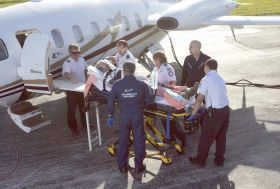 If you are in Mexico full time or a snowbird staying 6 months or more, it would be best for you to purchase a private, year round Mexican health insurance policy. The same is true for almost any country. Many insurance companies have restrictions on pre-existing conditions, so always read the fine print.
If you are in Mexico full time or a snowbird staying 6 months or more, it would be best for you to purchase a private, year round Mexican health insurance policy. The same is true for almost any country. Many insurance companies have restrictions on pre-existing conditions, so always read the fine print. I also recommend you purchase a membership from a medical evacuation company such as ours on top of that medical insurance policy if...
 If you are in Mexico full time or a snowbird staying 6 months or more, it would be best for you to purchase a private, year round Mexican health insurance policy. The same is true for almost any country. Many insurance companies have restrictions on pre-existing conditions, so always read the fine print.
If you are in Mexico full time or a snowbird staying 6 months or more, it would be best for you to purchase a private, year round Mexican health insurance policy. The same is true for almost any country. Many insurance companies have restrictions on pre-existing conditions, so always read the fine print. I also recommend you purchase a membership from a medical evacuation company such as ours on top of that medical insurance policy if returning to your home city/country in the event of a serious medical condition is important to you. Your insurance policy is only obligated to transport you to another hospital if you cannot be properly treated where first hospitalized, and then, only to the closest facility capable of treating you. An insurance policy has no obligation to take you home to Canada or the U.S.
We know many people are traveling “naked”, meaning they have no travel health insurance because as they get older, travel insurance can be too costly. If any of these people require an emergency medical evacuation, it could cost them up to 50 thousand US or more up front. Our membership does not cover hospital cost but at least those who travel naked will have some peace of mind knowing they have medical emergency evacuation coverage that will pay 100% of the air ambulance home; no deductible and no co-pay.
Every year we see many sad situations when someone needs to be air evacked back to the USA or Canada with no coverage. It is very hard on the family trying to find money overnight to pay for a medical air evacuation. We have short trip, annual, and multi-year memberships at a cost is surprisingly small.
(Pictured: medical evacuation to an airplane.)
Posted July 2, 2016
Melanie Lansing - Mexico Insurance Advisors
Yvon Marier is correct about the importance of not "traveling naked". When Snowbirds and travelers come down to Mexico they often neglect to consider what might happen in a Medical Emergency in Mexico.

Here are some important things to consider before you travel:
1. Traveler´s vs. Health Insurance - Which is...
Yvon Marier is correct about the importance of not "traveling naked". When Snowbirds and travelers come down to Mexico they often neglect to consider what might happen in a Medical Emergency in Mexico.

Here are some important things to consider before you travel:
1. Traveler´s vs. Health Insurance - Which is the better deal? - Many people tend to ignore that traveler´s insurance only cover s sudden, unexpected illnesses, accidents, and injuries. It doesn´t cover any medical conditions for which individuals are taking medication or any pre-existing diagnosis (prior illnesses, accidents, or surgeries). For example, an individual diagnosed with hypertension and on heart medication would not be covered by Traveler´s Insurance for a heart attack. It is always better to have full health insurance coverage. Individuals who are outside of their country of origin 6 months or more a year qualify for Expat Health Insurance. Several affordable plans are available.
s sudden, unexpected illnesses, accidents, and injuries. It doesn´t cover any medical conditions for which individuals are taking medication or any pre-existing diagnosis (prior illnesses, accidents, or surgeries). For example, an individual diagnosed with hypertension and on heart medication would not be covered by Traveler´s Insurance for a heart attack. It is always better to have full health insurance coverage. Individuals who are outside of their country of origin 6 months or more a year qualify for Expat Health Insurance. Several affordable plans are available.
 s sudden, unexpected illnesses, accidents, and injuries. It doesn´t cover any medical conditions for which individuals are taking medication or any pre-existing diagnosis (prior illnesses, accidents, or surgeries). For example, an individual diagnosed with hypertension and on heart medication would not be covered by Traveler´s Insurance for a heart attack. It is always better to have full health insurance coverage. Individuals who are outside of their country of origin 6 months or more a year qualify for Expat Health Insurance. Several affordable plans are available.
s sudden, unexpected illnesses, accidents, and injuries. It doesn´t cover any medical conditions for which individuals are taking medication or any pre-existing diagnosis (prior illnesses, accidents, or surgeries). For example, an individual diagnosed with hypertension and on heart medication would not be covered by Traveler´s Insurance for a heart attack. It is always better to have full health insurance coverage. Individuals who are outside of their country of origin 6 months or more a year qualify for Expat Health Insurance. Several affordable plans are available. 2. How would I pay for a medical emergency?- Private hospitals in Mexico only take cash, debit or credit cards. You will need to have credit or debit cards with at least a $10,000 USD balance to cover any medical emergency.
3. Will my health or traveler´s insurance pay for my hospital bill? - Showing an insurance card at any private Mexican hospital does not guarantee you service. Hospitals take from 48 to 72 hours to verify health insurance coverage & benefits. Private hospitals, therefore, require payment up front for services.
Posted July 3, 2016
David Whittington - Tucan Golf Club and Resort
 There are a lot of things you need to know about living abroad, starting with your attitude. I find a lot of people come down here to Panama and they still have the same attitude and expectations as when they lived in Canada or the US and they should rather adapt to what’s going on here. At least they should have an accepting attitude, etc.
There are a lot of things you need to know about living abroad, starting with your attitude. I find a lot of people come down here to Panama and they still have the same attitude and expectations as when they lived in Canada or the US and they should rather adapt to what’s going on here. At least they should have an accepting attitude, etc. For example, the quality of workmanship will not be as good here as in North America. If you don’t accept...
 There are a lot of things you need to know about living abroad, starting with your attitude. I find a lot of people come down here to Panama and they still have the same attitude and expectations as when they lived in Canada or the US and they should rather adapt to what’s going on here. At least they should have an accepting attitude, etc.
There are a lot of things you need to know about living abroad, starting with your attitude. I find a lot of people come down here to Panama and they still have the same attitude and expectations as when they lived in Canada or the US and they should rather adapt to what’s going on here. At least they should have an accepting attitude, etc. For example, the quality of workmanship will not be as good here as in North America. If you don’t accept it you can pretty well drive yourself a little mad. If you do find someone who provides good quality workmanship, you should stay with them.
You don’t have to agree with how things are here, but you need to accept it. For example, I don’t agree with the traffic here in Panama City but I accept it because I’m driving in it. I don’t agree with the lack of training many times service people have. For example, recently, I had to show a gas station attendant how to check my oil. I don’t agree with it, but I accept it.
(Puma gas station, Panama, picutred.)
Posted July 8, 2016
David Reid
 The answers submitted so far have been very general because the question was so general. The reply to check up on health insurance is a very good one, but there is a lot more.
The answers submitted so far have been very general because the question was so general. The reply to check up on health insurance is a very good one, but there is a lot more. Hence it would be best to either ask specific questions or if you give more details, such as whether you have selected a country, whether you are fluent in other languages besides English, whether you have ever been abroad before, what your financial status is, whether you want to live with...
 The answers submitted so far have been very general because the question was so general. The reply to check up on health insurance is a very good one, but there is a lot more.
The answers submitted so far have been very general because the question was so general. The reply to check up on health insurance is a very good one, but there is a lot more. Hence it would be best to either ask specific questions or if you give more details, such as whether you have selected a country, whether you are fluent in other languages besides English, whether you have ever been abroad before, what your financial status is, whether you want to live with expats or with the rest of the population, whether you are married, if you want to try to work abroad, and if so, what your profession is, how your health is, and so forth.
Alternatively, it is a good idea to visit the place you are thinking of moving to before taking any definitive steps, and even once you have decided to move there, not to buy anything substantial for a few months, because you may change your mind. To choose a country, do a little traveling first. In general, you will always find out new stuff once you move, no matter how much you read beforehand. Anyway, the discovery of new stuff is part of the fun!
(Pictured: Israel, one of the places David Reid has lived.)
Posted August 9, 2016
John Ohe - Hola Expat Tax Services
 You need to be ready to file taxes! The United States has a highly stringent policy when it comes to the taxation of its citizens and permanent residents (i.e., those with a green card). The US government taxes all of its citizens based on worldwide income, which means it does not matter where the money is earned. US citizens and permanent residents may be able to exclude up to $100,800 in foreign earned income provided they meet certain qualifications. Given the high exclusion...
You need to be ready to file taxes! The United States has a highly stringent policy when it comes to the taxation of its citizens and permanent residents (i.e., those with a green card). The US government taxes all of its citizens based on worldwide income, which means it does not matter where the money is earned. US citizens and permanent residents may be able to exclude up to $100,800 in foreign earned income provided they meet certain qualifications. Given the high exclusion... You need to be ready to file taxes! The United States has a highly stringent policy when it comes to the taxation of its citizens and permanent residents (i.e., those with a green card). The US government taxes all of its citizens based on worldwide income, which means it does not matter where the money is earned. US citizens and permanent residents may be able to exclude up to $100,800 in foreign earned income provided they meet certain qualifications. Given the high exclusion amount, most US expats end up not owing any taxes, although they are required to file a tax return. In countries with a higher income tax rate than in the US, it is often preferable to utilize the foreign tax credit, rather than the foreign earned income exclusion to eliminate US tax liability. The foreign tax credit addresses the issue of double taxation.
You need to be ready to file taxes! The United States has a highly stringent policy when it comes to the taxation of its citizens and permanent residents (i.e., those with a green card). The US government taxes all of its citizens based on worldwide income, which means it does not matter where the money is earned. US citizens and permanent residents may be able to exclude up to $100,800 in foreign earned income provided they meet certain qualifications. Given the high exclusion amount, most US expats end up not owing any taxes, although they are required to file a tax return. In countries with a higher income tax rate than in the US, it is often preferable to utilize the foreign tax credit, rather than the foreign earned income exclusion to eliminate US tax liability. The foreign tax credit addresses the issue of double taxation. US persons (including entities) with an interest or signature authority over foreign financial accounts that have an aggregate balance exceeding $10,000 are required to file the FBAR (FinCen 114). The FBAR is separate requirement from your tax return. Failure to file the FBAR carries hefty penalties. Its important to note that with the implementation of FATCA (Foreign Account Tax Compliance Act), foreign financial institutions are providing the IRS with the details of foreign financial accounts held by US persons. As a result, non-reporting is an increasingly risky proposition.
Posted January 27, 2017
By Edgington
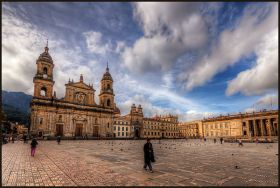 My wife and I have lived in two of the most publicized retirement locations, Panama and Colombia. One of the most important things we've learned about the culture, and this applies to both countries, is that we're wealthy gringos. That seems obvious, but there have been interesting, sometimes disheartening implications in this. Compared to the average Colombian, for example, we are fabulously wealthy. In the top 1%, without question. These folks' average monthly income is...
My wife and I have lived in two of the most publicized retirement locations, Panama and Colombia. One of the most important things we've learned about the culture, and this applies to both countries, is that we're wealthy gringos. That seems obvious, but there have been interesting, sometimes disheartening implications in this. Compared to the average Colombian, for example, we are fabulously wealthy. In the top 1%, without question. These folks' average monthly income is... My wife and I have lived in two of the most publicized retirement locations, Panama and Colombia. One of the most important things we've learned about the culture, and this applies to both countries, is that we're wealthy gringos. That seems obvious, but there have been interesting, sometimes disheartening implications in this. Compared to the average Colombian, for example, we are fabulously wealthy. In the top 1%, without question. These folks' average monthly income is currently $239.00 US. (That isn't a typo.) Our combined monthly income is, let's just say, roughly 23 times as much. Colombians work very, very hard for that wage, often seven days a week. Our $$ rolls in every month, no labor required. All we have to do is keep breathing.
My wife and I have lived in two of the most publicized retirement locations, Panama and Colombia. One of the most important things we've learned about the culture, and this applies to both countries, is that we're wealthy gringos. That seems obvious, but there have been interesting, sometimes disheartening implications in this. Compared to the average Colombian, for example, we are fabulously wealthy. In the top 1%, without question. These folks' average monthly income is currently $239.00 US. (That isn't a typo.) Our combined monthly income is, let's just say, roughly 23 times as much. Colombians work very, very hard for that wage, often seven days a week. Our $$ rolls in every month, no labor required. All we have to do is keep breathing. Are we ashamed or ambivalent about having this wealth? No, we earned it, after a fashion, in the good old USA, and we are, in fact, entitled to it. But having it demands a certain amount of discretion here in Colombia. It also presents a different perspective, an education in the disparity that exists between us and folks we live among.
Here's a recent example: When we signed for our apartment in Laureles, a reasonably well off barrio of Medellin, I asked about the deposit. 'No deposit,' I was told. Wha..? No deposit, I asked? 'What protection does the landlord have?' My wife and I are landlords, too, having owned rental properties in Ohio, and still having one. We know what can happen if a tenant has paid no deposit. In any case, my question was what happens here in Colombia with no deposit? The answer was that no owner can demand a deposit, because local folks can't afford to pay one. And if a deposit is required, the property will not find a tenant.
Here's another example. It's common in Medellin for store clerks, grocery cashiers, restaurant waiters to ask, when paying with a credit card, how many payments we'd like to make toward our bill? At first, this question confounded us. We'd like to pay it all, of course. The basis for the question is, again, for any amount above about $30.00, it's not uncommon for Colombians to need two or three months to meet it. Considering the monthly wage of $239.00, its easy to see why $30.00 would be a stretch.
In any case, we have had to assimilate that fundamental reality into our daily interaction with folks. Compared to us, and likely most expats, these people are poor. Not poor in cultural heritage, relationships, family and social wealth poor, but cash/financial latitude/discretionary income poor. It's hard to conceive of an inability to cough up $30.00 at one time, but it's their reality. It's hard to learn that lesson, but I believe we expats must make the effort.
(Plaza de Bolivar, Colombia, pictured.)
Posted June 28, 2017
Ross - Abroad We Go
 When living or retiring abroad, you need to look into taxation, financial planning, and citizenship. It’s important to know how these factors would affect making the decision of living or retiring abroad. You need to know the limitations in the length of stay allowed in certain countries, as well as financial restrictions.
When living or retiring abroad, you need to look into taxation, financial planning, and citizenship. It’s important to know how these factors would affect making the decision of living or retiring abroad. You need to know the limitations in the length of stay allowed in certain countries, as well as financial restrictions. For example, countries within the European Union allow only 90 days of stay, and you need to know this before visiting any of...
 When living or retiring abroad, you need to look into taxation, financial planning, and citizenship. It’s important to know how these factors would affect making the decision of living or retiring abroad. You need to know the limitations in the length of stay allowed in certain countries, as well as financial restrictions.
When living or retiring abroad, you need to look into taxation, financial planning, and citizenship. It’s important to know how these factors would affect making the decision of living or retiring abroad. You need to know the limitations in the length of stay allowed in certain countries, as well as financial restrictions. For example, countries within the European Union allow only 90 days of stay, and you need to know this before visiting any of those countries.
There are limitations in every country and you need to get the most updated information on the travel and financial restrictions; what you can and can’t do financially, how you need to report income, etc. I would get advice from professionals before I make the decision of which country in which to retire.
(Greek Orthodox church in Santorini, Greece, pictured.)
Posted October 30, 2017


